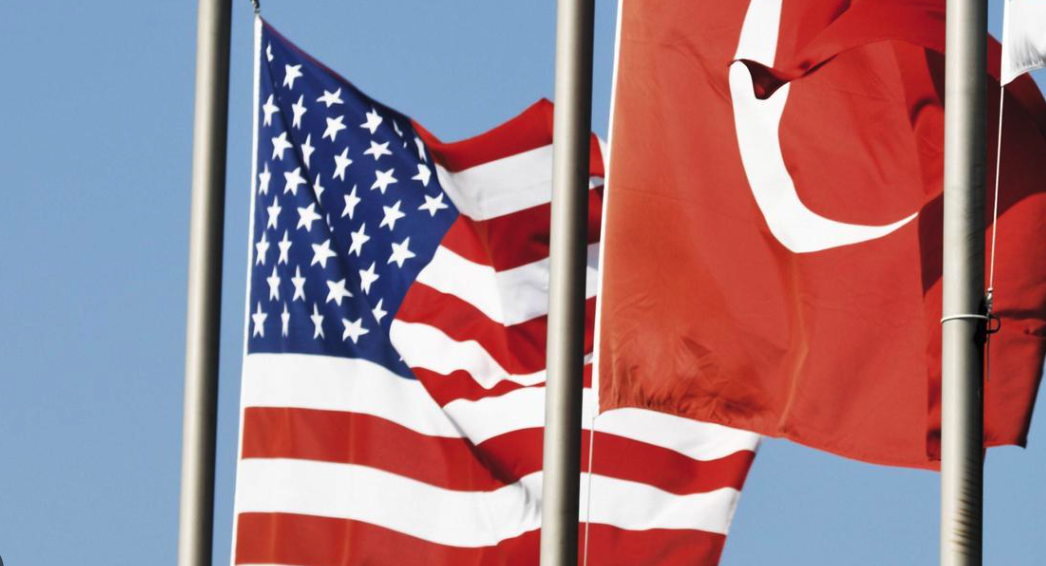President Recep Tayyip Erdogan is the favorite to win Turkey’s hotly contested runoff election that will have implications for its relationship with Washington. By Elizabeth Hagedorn in Al-Monitor on May 17, 2023.
Turkish voters will return to the polls later this month in a heated runoff election that will be watched closely by the United States.
The Biden administration is bracing for another five years with President Recep Tayyip Erdogan in power after Turkey’s longest-serving leader finished with a more than four-point lead in the May 14 elections. Because neither Erdogan nor his main challenger, Kemal Kilicdaroglu, won a simple majority, the country will hold a second-round vote to determine Turkey’s next president on May 28.
The initial vote has left the Turkish opposition in “a state of shock and disarray,” Amberin Zaman reports. In the lead-up to the election, polls projected a slight edge for Kilicdaroglu, a former civil servant who promised to restore US relations strained by Erdogan’s coziness with Russia and democratic backsliding. (Al-Monitor’s own poll had the two candidates in a dead heat).
The surprise results have prompted some serious soul-searching and scapegoating within the opposition. Kilicdaroglu must « overcome demotivation and fatigue among his supporters and counter Erdogan, who will appeal to the electorate to vote for consistency and stability,” writes Nazlan Ertan.
Erdogan’s better-than-expected performance fueled accusations of voter fraud. Kilicdaroglu’s Republican People’s Party (CHP) filed a complaint with Turkey’s election board but acknowledged the suspected irregularities at thousands of ballot boxes were not enough to alter the election outcome.
On Wednesday, CHP official Muharrem Erkek told reporters in Ankara that his party is “following every single vote, even if it does not change the overall results.”
Critics have pointed out that Erdogan’s use of state spending and his monopoly over the media gave him an unfair advantage heading into the election. Days before the election, Erdogan announced pay raises for state employees.
Asked about the tight race, President Joe Biden told reporters Sunday, “I just hope … whoever wins, wins. I mean, there’s enough problems in that part of the world right now without that happening.”
Gonul Tol, founding director of the Middle East Institute’s Turkey program, doesn’t expect the Biden administration to say much more than that.
“Biden said ‘We’re going to work with whoever is in power,’” Tol said. “It’s a very transactional relationship, and that’s why I’m not optimistic that we’re going to hear anything from the State Department regarding fraud allegations.”
Biden’s team has another reason to stay neutral: avoiding the crosshairs of Erdogan’s conspiracies. During the final stretch of the campaign, the Turkish president said Biden “gave the order to topple Erdogan.” Last month, Turkey’s interior minister similarly warned of a “political coup attempt” organized by Washington.
Erdogan, whose Justice and Development Party won the majority in the parliamentary elections, has the momentum heading into the May 28 runoff. Soner Cagaptay, director of the Turkish Research Program at the Washington Institute for Near East Policy, expects that if Erdogan wins he’ll use Sweden’s NATO bid to demand a face-to-face meeting with Biden during the alliance’s summit in Lithuania this July.
“I have a feeling he’s kind of getting ready for that reset with Biden,” Cagaptay said. “We’ll see more of the transactionalist foreign policy, where Erdogan is coming to the US and Russia to get what he wants.”

